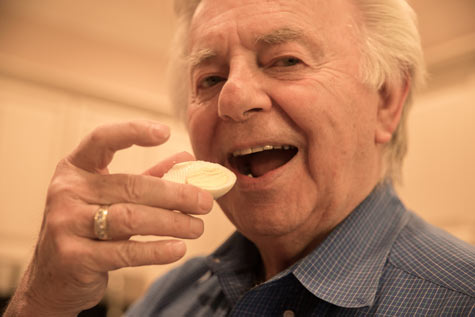
Helping seniors meet daily protein requirements aids in recovery from surgery.
Pass the cheese, please! Current research studies are showing the need for a protein-rich diet for senior loved ones, in particular during occasions of stress, such as when battling a chronic disease or acute illness, or preparing for a surgical procedure or hospitalization, when protein is processed less effectively. And even when healthy, meeting daily protein requirements for seniors is paramount to sustaining muscle strength and mass, healthy bones and much more.
Contact us online or call us at 913-440-4209 to learn how our caregivers can help senior loved ones meet protein requirements and improve overall nutrition. Use the information below to get started on improving nutrition for senior loved ones.
Nevertheless, up to one-third of all seniors aren’t consuming sufficient levels of protein, for a plethora of reasons, including:
- Taste impairments
- Difficulties with swallowing
- Monetary limitations
- Decreased appetite
- Dental issues
And, the less active lifestyle that many seniors lead further compounds the negative impacts of too little protein intake, such as:
- Worsening mobility
- Decreased muscle mass and strength
- Extended recuperation times when ill
- Eventual loss in independence
The good thing is, men and women who do eat recommended quantities of protein are more likely to continue to maintain independent functionality with tasks such as getting dressed and attending to other personal hygiene needs, walking, and climbing stairs. As stated by Wayne Campbell, professor of nutrition science at Purdue University, “While eating an adequate amount of protein is not going to prevent age-associated loss of muscle altogether, not eating enough protein can be an exacerbating factor that causes older adults to lose muscle faster.”
The research report indicates that protein ought to be obtained from natural food sources, as opposed to through protein shakes. Suggested protein levels are generally .8 grams of protein per 2.2 pounds of body weight each day; so, for a 120-pound woman, that equates to 48 grams of protein/day. However, for anyone dealing with the stressors mentioned previously, the guideline increases to 1.2 – 1.5 grams of protein per 2.2 pounds of body weight.
These protein-rich foods are wonderful choices:
- Chicken (28 grams of protein per 3-ounce serving)
- Yogurt (18 grams of protein per 6-ounce serving)
- Cottage cheese (14 grams of protein per ½-cup serving)
- Lentils (9 grams of protein per cup)
- Milk (8 grams of protein per cup)
Make certain to check with the senior’s doctor before making any dietary changes. Once a dietary plan is authorized, let Hearts at Home In-Home Care provide support by planning and preparing healthy, appetizing meals, picking up groceries and ensuring the pantry and fridge are stocked with healthy meal and snack options, providing motivation to maintain an active lifestyle, and so much more – all bringing about improved health and wellness.
Email us or call us at any time at 913-440-4209 to ask about a free in-home consultation for more information about our top-rated in home elder care Kansas City and the surrounding areas.
